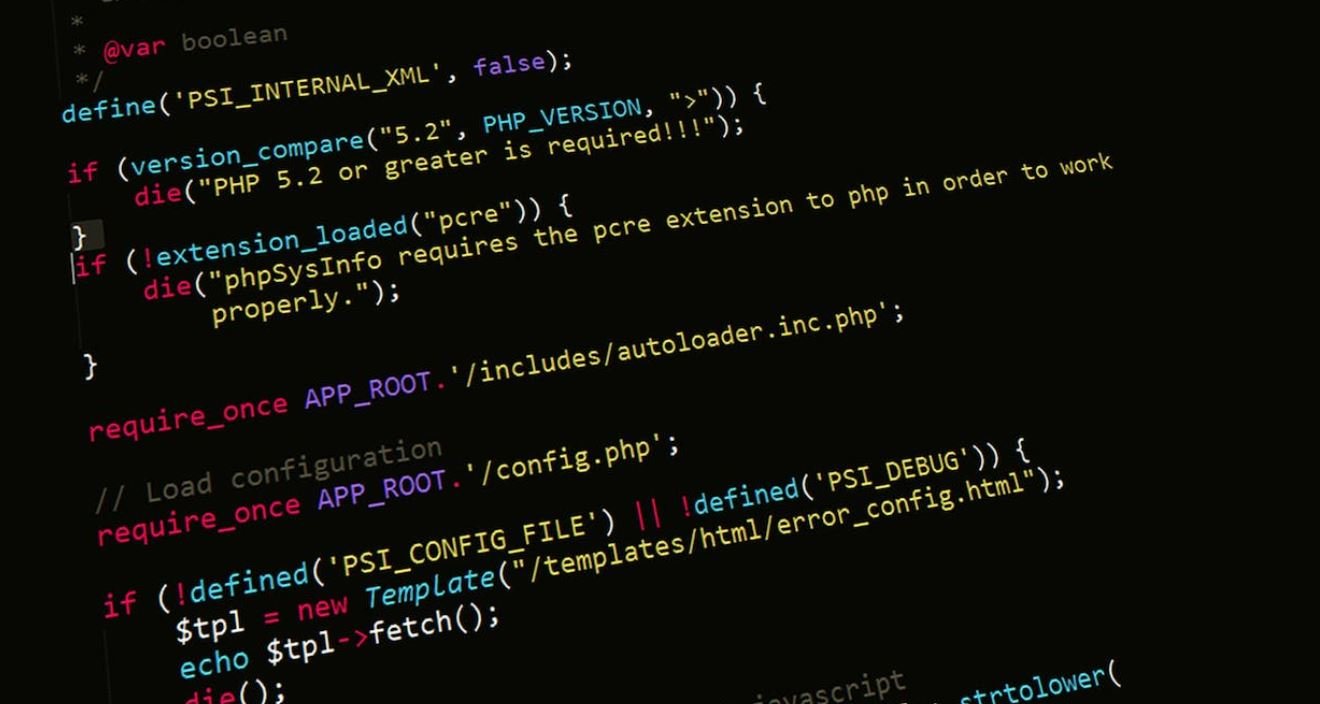Artificial Intelligence vs. Algorithm
In the world of technology, terms like Artificial Intelligence (AI) and Algorithm often come up. While these terms are related, they are not interchangeable. Understanding the difference between AI and Algorithm is crucial for businesses and individuals who want to leverage these technologies effectively.
Key Takeaways:
- Artificial Intelligence (AI) is a broader concept that refers to machines simulating human intelligence, while an algorithm is a step-by-step procedure for solving a problem.
- AI utilizes algorithms to process and analyze data, enabling machines to perform human-like tasks.
- Algorithms are used in various fields such as mathematics, computer science, and data analysis, and serve as the building blocks of AI systems.
- Both AI and algorithms play significant roles in advancing technology, automation, and decision-making processes.
Understanding Artificial Intelligence and Algorithms
Artificial Intelligence involves the development of machines that can perform tasks requiring human intelligence. This includes solving complex problems, recognizing patterns, understanding natural language, and making decisions. AI systems use algorithms as the underlying mechanisms to process and analyze vast amounts of data to accomplish these tasks.
An algorithm, on the other hand, is a set of instructions or rules designed to perform specific tasks or solve problems. Algorithms, which can be mathematical or logical, are used in various disciplines. From basic arithmetic to complex machine learning models, algorithms are the backbone of data processing and analysis.
An interesting aspect of algorithms is that they can optimize tasks based on specific criteria, such as efficiency or accuracy. This ability allows algorithms to adapt and improve as more information is processed.
The Role of Artificial Intelligence
Artificial Intelligence systems leverage algorithms to enable machines to learn from experience, adjust to new inputs, and perform tasks autonomously. AI encompasses a wide range of techniques, including machine learning, neural networks, natural language processing, and computer vision. These technologies enable machines to understand, interpret, and mimic human-like behavior.
Machine learning algorithms, for example, can learn from data patterns, make predictions, and adapt their models. A neural network, an AI model inspired by the human brain, can recognize complex patterns and classify vast amounts of data. Natural language processing algorithms allow machines to understand and generate human language effectively.
It’s fascinating to see how AI technology is continuously evolving to perform tasks that previously required human intervention, pushing the boundaries of what machines can achieve.
Comparison: Artificial Intelligence and Algorithms
| Artificial Intelligence | Algorithms |
|---|---|
| AI simulates human intelligence. | Algorithms are sets of instructions. |
| AI can learn from data and adjust its behavior. | Algorithms process data based on specific rules. |
| AI performs complex tasks requiring human-like intelligence. | Algorithms solve specific problems or tasks. |
Applications and Impact
The applications of AI and algorithms are vast and have significant impacts across industries and daily life. AI-driven technologies are revolutionizing healthcare diagnostics, autonomous vehicles, personalized advertising, fraud detection, and more. Algorithms, on the other hand, are essential in data analysis, search engines, recommendation systems, and optimization problems.
It’s intriguing to see how AI and algorithms are transforming industries, improving efficiency and decision-making processes, and opening up new possibilities for innovation and growth.
Conclusion
Artificial Intelligence and algorithms are distinct but interconnected concepts. While AI utilizes algorithms as its building blocks, AI goes beyond algorithms in simulating human intelligence and performing complex tasks. Algorithms, on the other hand, are the fundamental tools used by AI and play a vital role in various domains. Understanding the difference between AI and algorithms is crucial for harnessing their potential and making informed decisions in today’s technology-driven world.

Common Misconceptions
1. AI and Algorithms are the same thing
One common misconception is that artificial intelligence (AI) and algorithms are interchangeable terms, when in fact they are distinct concepts.
- AI refers to the ability of a machine to simulate human intelligence and perform tasks that would typically require human intelligence.
- An algorithm, on the other hand, is a set of rules or instructions that a computer follows to solve a specific problem or complete a specific task.
- AI often utilizes algorithms to make intelligent decisions or solve complex problems, but it is not limited to algorithms alone.
2. All AI systems are inherently biased
Another misconception is that all AI systems are inherently biased. While it is true that AI can learn from human data and reflect biases present in that data, biases in AI systems are not inevitable or inherent.
- Biases in AI systems can be minimized and eliminated through careful data selection, diverse training data, and rigorous testing.
- Researchers and developers are actively working on developing AI systems that are transparent, fair, and less prone to biases.
- It is crucial to recognize that biases in AI systems are a result of human design and not an inherent quality of AI itself.
3. AI will replace humans in the workforce entirely
There is a common fear that AI will replace humans in the workforce completely, leading to mass unemployment. However, this is an exaggeration and oversimplification.
- AI is designed to complement and augment human capabilities, not replace them entirely.
- AI can automate repetitive and mundane tasks, allowing humans to focus on more complex and creative work.
- As AI continues to evolve, new job opportunities and roles that require human skills such as critical thinking, empathy, and creativity are likely to emerge.
4. AI is infallible and always accurate
Contrary to popular belief, AI is not infallible and always accurate. While AI systems can perform tasks with remarkable efficiency and precision, they are not exempt from errors or limitations.
- AI systems heavily depend on the quality and quantity of data they are trained on. Insufficient or biased data can lead to inaccurate or biased outcomes.
- AI systems can also face challenges in interpreting or understanding certain contexts or nuances that humans can readily grasp.
- Regular monitoring, testing, and continuous improvement are necessary to ensure the accuracy and reliability of AI systems.
5. AI will inevitably surpass human intelligence
Lastly, a misconception is that AI will inevitably surpass human intelligence and become superior in every aspect. While AI has made significant advancements, achieving true human-like intelligence, often referred to as artificial general intelligence (AGI), remains a distant goal.
- AI currently excels in narrow domains and specific tasks but lacks the broad understanding and adaptability of human intelligence.
- Although AI can outperform humans in certain tasks, it is important to remember that human intelligence encompasses a wide range of skills, including emotional intelligence, social interactions, and creativity, which AI has yet to fully replicate.
- The development of AGI is a complex and ongoing area of research, and it is difficult to predict when or if it will ever surpass human intelligence.

Artificial Intelligence in Technology
Artificial Intelligence (AI) is a powerful technology that has revolutionized various industries. This table highlights some of the key applications of AI in different sectors:
| Sector | AI Application |
|---|---|
| Healthcare | AI-powered diagnosis and treatment recommendation systems |
| Finance | Robo-advisors for personalized financial planning |
| Transportation | Self-driving vehicles using machine learning techniques |
| Retail | AI-powered chatbots for customer support |
| Manufacturing | AI-enabled predictive maintenance for machinery |
Benefits of AI in Business
AI offers numerous benefits to businesses, enhancing efficiency and productivity. The table below highlights some advantages of incorporating AI technology:
| Business Benefit | Description |
|---|---|
| Improved Decision Making | AI algorithms analyze vast amounts of data to provide data-driven insights for informed decision-making. |
| Automation | AI automates repetitive tasks, freeing up human resources for more complex and creative work. |
| Enhanced Customer Experience | AI-powered chatbots and virtual assistants offer personalized and instant customer support. |
| Increased Efficiency | AI optimizes processes, reducing errors and minimizing resource wastage. |
| Advanced Data Analysis | AI algorithms can quickly analyze vast amounts of data, identifying patterns and trends that humans may miss. |
Algorithm in Social Media
Algorithms play a crucial role in shaping the content users see on social media platforms. This table gives insights into the algorithmic features of popular social media platforms:
| Social Media Platform | Algorithmic Features |
|---|---|
| Uses personalization algorithms to prioritize content based on user preferences. | |
| Employs an algorithm that displays content based on user interactions, popularity, and relevance. | |
| Utilizes algorithms to display tweets based on user interests, engagement, and recency. | |
| TikTok | Uses a recommendation algorithm that suggests content based on individual user behavior. |
| Provides personalized content suggestions based on user’s professional profile and connections. |
Ethical Considerations in AI
As AI continues to advance, ethical concerns arise. The table below presents some key ethical considerations related to AI technology:
| Ethical Concern | Description |
|---|---|
| Privacy | AI systems collect and process massive amounts of personal data, raising concerns about privacy breaches. |
| Algorithmic Bias | Algorithms can perpetuate biases and discrimination if trained on biased datasets or designed with inherent biases. |
| Job Displacement | The use of AI in automation may lead to job losses if human workers are replaced by machines. |
| Accountability | Determining liability and responsibility when AI systems make errors or harmful decisions is a complex ethical issue. |
| Autonomous Weapons | The development of AI-powered autonomous weapons raises concerns about the lack of human control and potential misuse. |
The Future Role of AI
AI is expected to have a significant impact on various aspects of our lives. This table explores potential future applications of AI:
| Domain | Potential AI Application |
|---|---|
| Education | Personalized AI tutors providing tailored learning experiences. |
| Energy | AI systems optimizing energy distribution and consumption for more sustainable practices. |
| Entertainment | AI-generated content, such as movies or music, personalized to individual preferences. |
| Agriculture | AI-powered systems for crop monitoring, yield prediction, and precision farming practices. |
| Space Exploration | Autonomous AI-driven rovers for planetary exploration and scientific research. |
Limitations of Algorithmic Decision-Making
Though algorithms are powerful tools, they also have limitations. This table highlights some of the drawbacks of relying solely on algorithmic decision-making:
| Limitation | Description |
|---|---|
| Lack of Contextual Understanding | Algorithms may struggle to understand and interpret complex nuances or subtle contextual information. |
| Dependency on Quality of Data | Algorithmic outcomes heavily rely on the quality and diversity of the input data used for training. |
| Unpredictability | Complex algorithms may produce results that are difficult to understand or predict, leading to potential mistrust. |
| Overreliance on Historical Data | Algorithms trained on historical data may perpetuate existing biases and fail to adapt to changing circumstances. |
| Human Exclusion | Some decisions require human involvement for ethical considerations and individual judgment. |
The Intersection of AI and Algorithms
The table below showcases how AI and algorithms are interconnected:
| Relationship | Description |
|---|---|
| AI Uses Algorithms | Artificial Intelligence relies on algorithms to process data and make intelligent decisions or predictions. |
| Algorithmic Bias Affects AI | Biases present in algorithms can be unintentionally learned by AI systems, leading to biased decision-making. |
| Data Drives AI and Algorithms | Both AI and algorithms require data to train and operate effectively, underscoring the importance of quality data. |
| AI Advances Algorithm Development | AI research contributes to the development of more advanced algorithms for enhanced performance. |
| Ethical Guidelines for AI Algorithms | Considering ethical implications, guidelines are formulated to govern the development and deployment of AI algorithms. |
The Impact of AI and Algorithms on Employment
AI and algorithms influence the job market in various ways. This table highlights their impact on employment:
| Impact | Description |
|---|---|
| Automation of Routine Tasks | AI-driven automation may replace certain job roles that involve repetitive and manual tasks. |
| New Job Opportunities | AI technology opens avenues for new job roles focused on AI development, maintenance, and ethical oversight. |
| Augmentation of Existing Jobs | AI can enhance human capabilities and improve job performance, leading to increased productivity. |
| Transformation of Industries | Industries undergo changes as AI and algorithms disrupt traditional processes, requiring new skills and expertise. |
| Need for Upskilling | The adoption of AI and algorithms necessitates reskilling or upskilling to remain employable in the evolving job market. |
Conclusion
Artificial Intelligence and algorithms are integral components of modern technology, each with their own applications and implications. AI possesses vast potential for improving various sectors, while algorithms influence user experiences on social media platforms. However, ethical concerns, limitations, and the impact on employment must be carefully considered. As AI continues to advance, it is crucial to strike a balance between technological progress and ensuring responsible and ethical use of these powerful tools.
Frequently Asked Questions
What is the difference between Artificial Intelligence and Algorithm?
Artificial Intelligence (AI) refers to the simulation of human-like intelligence in machines, allowing them to learn, reason, and make decisions autonomously. An algorithm, on the other hand, is a set of step-by-step instructions or rules designed to solve a specific problem or accomplish a particular task.
How does Artificial Intelligence work?
AI systems are built using various techniques such as machine learning, natural language processing, computer vision, and expert systems. These systems process vast amounts of data, extract patterns and insights, and use them to make predictions, understand human language, recognize images, and perform other complex tasks.
What is the purpose of algorithms in AI?
Algorithms are an essential component of AI systems as they provide the instructions for solving specific tasks and making decisions. They define the logical steps that AI systems follow to process data, learn from it, and take appropriate actions.
Can an algorithm be considered as Artificial Intelligence?
No, an algorithm alone cannot be considered as Artificial Intelligence. While algorithms play a crucial role in AI systems, AI involves much more than just an algorithm. AI encompasses various techniques and technologies that enable machines to exhibit human-like intelligence.
What are the limitations of algorithms in comparison to Artificial Intelligence?
Algorithms are limited by their predefined rules and instructions. They can only perform tasks they are explicitly programmed to do and lack the ability to adapt and learn from new data or situations, unlike AI systems. AI, with its ability to learn and reason, can tackle complex problems that algorithms alone may struggle with.
How are algorithms and Artificial Intelligence used in everyday life?
Algorithms are used in various applications such as search engines, recommendation systems, and sorting algorithms. They help in providing relevant search results, suggesting products based on user behavior, and sorting data efficiently. AI is used in virtual assistants, autonomous vehicles, fraud detection systems, and many other advanced applications that require decision-making, learning, and understanding of natural language.
Can algorithms replace Artificial Intelligence?
No, algorithms cannot replace Artificial Intelligence. While algorithms are a fundamental part of AI, AI encompasses a broader range of technologies and techniques that enable machines to exhibit intelligent behavior and decision-making capabilities. Algorithms alone lack the ability to learn and reason autonomously.
Why is Artificial Intelligence important in today’s world?
Artificial Intelligence is important in today’s world because it has the potential to revolutionize various industries and improve the quality of human life. AI can automate repetitive tasks, enhance healthcare diagnostics, optimize resource allocation, drive innovative advancements, and tackle complex problems that were previously beyond human capabilities.
What are the ethical considerations associated with Artificial Intelligence?
Artificial Intelligence raises ethical concerns related to privacy, data security, bias, and potential job displacement. As AI systems become more autonomous and sophisticated, there is a need for ethical guidelines and regulations to ensure responsible development and use of AI that benefits society while minimizing harm.
What is the future of Artificial Intelligence and algorithms?
The future of Artificial Intelligence and algorithms looks promising. As technology advances, AI is expected to become more integrated into our daily lives, transforming industries and opening up new possibilities. Algorithms will continue to evolve and support AI systems, becoming more efficient and capable of handling larger datasets and complex tasks.




